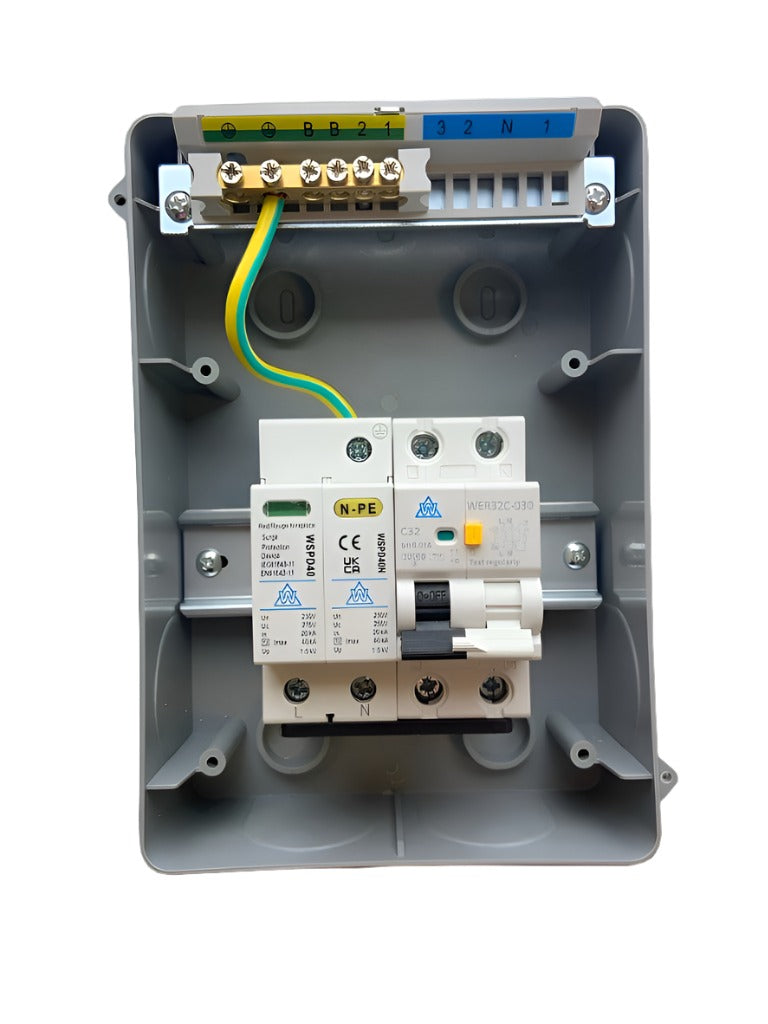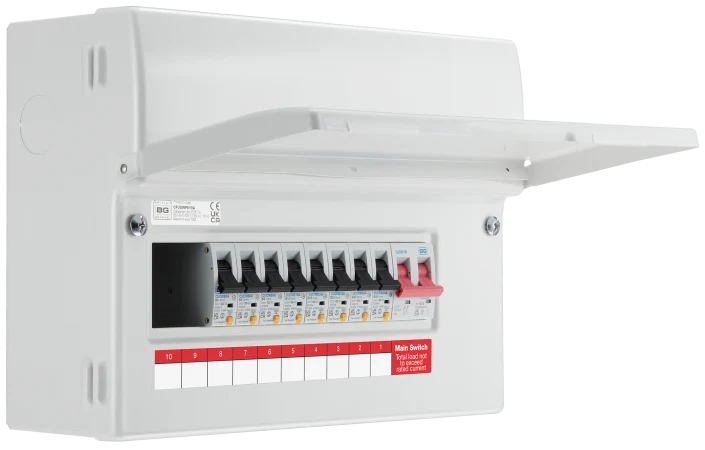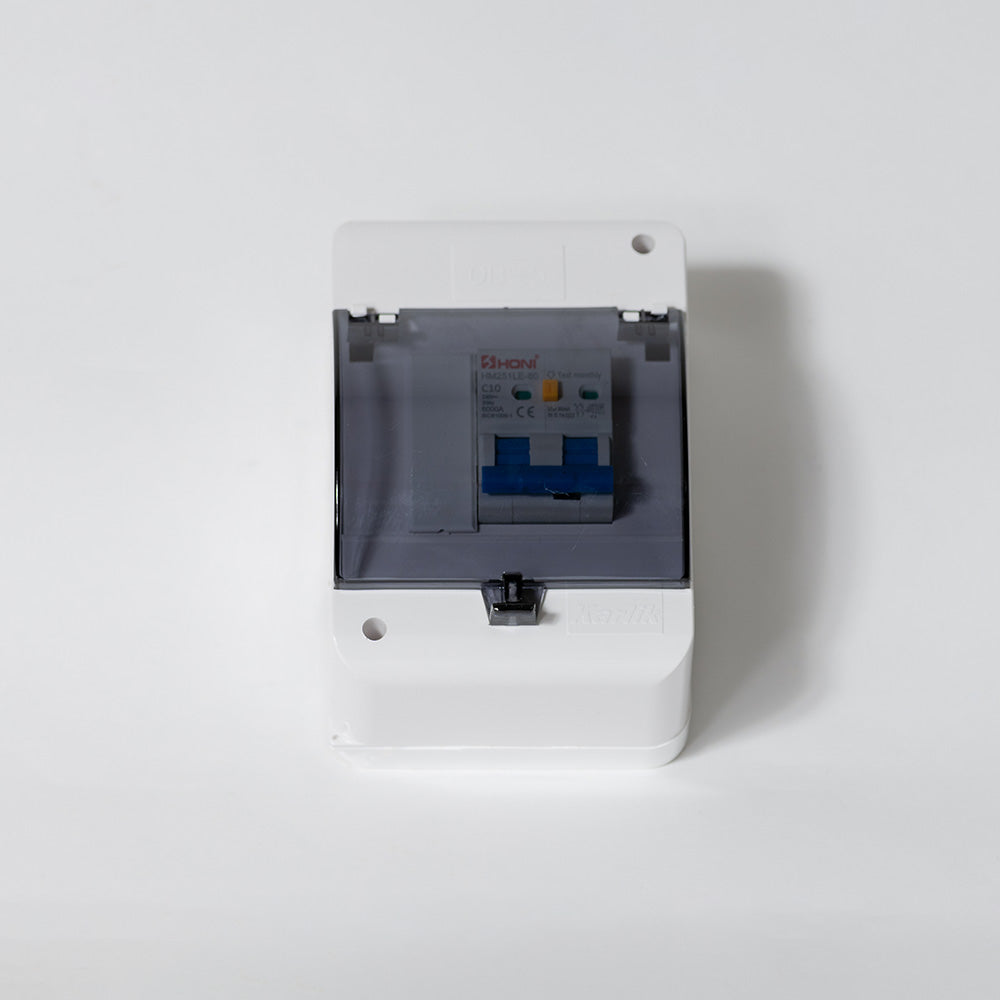How RCBO CONSUMER UNITS Enhance Electrical Safety in Residential Spaces
The Role of Consumer Units in Efficient Energy Administration Solution
Customer devices are indispensable to effective power management systems, offering as the main circulation points for electric power within structures. The arrival of wise modern technologies has even more improved their performance, enabling for real-time data tracking and nuanced energy usage evaluation.
Understanding Consumer Units

Recognizing the function of customer devices begins with recognizing their vital function in guarding electrical systems. By isolating faults within details circuits, consumer devices prevent extensive blackouts and possible fire threats. This isolation is achieved through using circuit breakers that journey or integrates that impact when a fault is found, consequently cutting off the electric circulation to the influenced circuit.
In addition, customer devices help with the well organized circulation of power, improving the effectiveness of power use. They permit for the methodical monitoring of electric tons, which can be specifically crucial in industrial and commercial setups where need can rise and fall substantially. Correctly maintained customer systems add to the durability of electrical systems and aid in minimizing downtime brought on by electric failings, ultimately supporting the seamless operation of energy-dependent facilities.
Smart Technologies Integration

A key benefit of smart customer devices is their ability to leverage progressed algorithms and machine knowing for anticipating analytics. This allows for preemptive adjustments based on usage patterns, weather report, and other variables, substantially raising overall efficiency. Clever consumer units promote need response programs, where energy use can be dynamically adjusted throughout optimal periods to maintain the grid and reduce prices.
The integration of renewable resource resources, such as solar and wind, is additionally streamlined via clever customer systems. By intelligently handling the intermittency of these sources, these systems guarantee a balanced and trustworthy energy supply. Furthermore, smart customer systems enhance customer engagement by offering in-depth insights and remote control capabilities through mobile applications, promoting a more aggressive strategy to power conservation and sustainability.
Tracking Energy Usage
Structure on the capabilities of wise innovations combination, monitoring power intake comes to be an essential emphasis within energy administration systems. By leveraging innovative metering infrastructure (AMI), real-time data on power use can be gathered at granular levels, giving useful insights right into intake patterns and peak demand periods.
Smart meters and Internet of Things (IoT) gadgets play a pivotal function in this surveillance process. These gadgets can visit this site track power use in real-time, sending information to central systems for analysis.
The combination of these technologies not only encourages consumers with detailed info concerning their energy use yet likewise supports utility carriers in taking care of lots distribution extra properly. Eventually, precise and constant tracking is crucial for accomplishing energy performance, expense financial savings, and sustainability goals within energy administration systems.
Optimizing Device Usage

One effective approach includes determining top and off-peak hours to shift energy-intensive activities, such as laundry or dishwashing, to times when power demand is lower. This not only decreases strain on the grid but likewise utilizes on lower power tariffs. Additionally, incorporating machine discovering algorithms permits predictive maintenance, making certain devices operate at optimal effectiveness and lengthening their life expectancy.
Energy management systems can also integrate user-specific preferences and actions to customize device usage timetables. Full Article For example, wise lighting systems can adjust illumination based upon tenancy and all-natural light accessibility, while a/c systems can preserve comfort degrees without extreme power usage.
Supporting Sustainability
Promoting sustainability within energy management systems entails not just boosting efficiency yet likewise fostering environmentally accountable practices. Consumer units are important to this process, as they supply real-time information and control systems that enable individuals to keep an eye on and lower their power usage. By leveraging advanced innovations, consumer devices can recognize energy-saving possibilities and help with the combination of renewable resource sources like solar and wind power.
One critical aspect of promoting sustainability is informing customers on the advantages of liable power usage. With in-depth insights given by consumer units, individuals can make informed choices that lessen their carbon impact. These units can recommend optimal times for operating high-energy home appliances based on grid demand and eco-friendly power accessibility, thus lowering reliance on fossil fuels.
In addition, customer systems support the adoption of smart grid technologies, which boost the general effectiveness and dependability of energy circulation. By making it possible for two-way interaction between customers and utility service providers, these systems can dynamically readjust to power demands, reducing waste and advertising the usage of lasting energy practices.
Conclusion
Customer devices, as integral elements of energy administration systems, considerably boost electric security and efficiency within buildings via circuit defense and wise technology combination. In addition, the incorporation of renewable energy resources advertises lasting go now techniques, adding to reduced general power intake and reduced carbon footprints.
Breakthroughs in smart innovations have transformed the abilities of energy monitoring systems, specifically via the integration of smart customer devices.Building on the capacities of clever modern technologies combination, keeping an eye on energy usage becomes a vital emphasis within power management systems.Efficient appliance usage optimization is a crucial element of energy monitoring systems, aiming to enhance performance and reduce unnecessary energy usage.Consumer units, as integral elements of power administration systems, dramatically boost electric safety and efficiency within structures via circuit security and wise modern technology assimilation. In addition, the consolidation of sustainable energy sources promotes lasting methods, contributing to lowered overall energy intake and reduced carbon impacts.